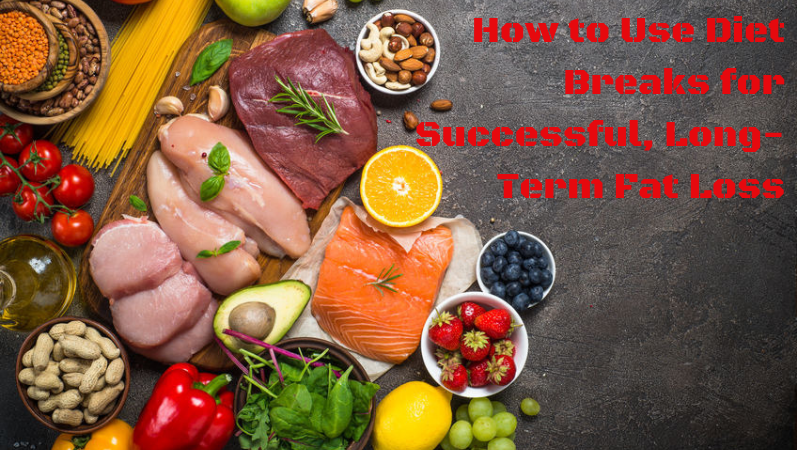What Is Intermittent Fasting? Part 1: The Benefits of Taking a Break From Eating
Todays post is going to cover a topic very near and dear to my heart: Intermittent Fasting, or IF as its commonly called. If you haven’t heard about IF, it’s a pretty simple concept. It’s the practice of abstaining from eating for a period of anywhere from 14 to 36 hours. It may sound difficult or scary, but remember you fast every single night while you sleep. IF just requires you to extend that fast by a few hours.
In the next two posts Ill be covering many different aspects of IF, including the benefits, the role IF plays in fat loss, the different variations and ways to incorporate them into your life, as well as my experiences with Intermittent Fasting.
Intermittent Fasting: Flying in the Face of Conventional Diet Wisdom
Raise your hand if you’ve heard this one before, “Breakfast is the most important meal of the day.” I’m guessing most, if not all of you have your hands up.
I’m also guessing anyone around you may be wondering why you have your hand in the air. It’s okay, you can put it down now.
Anyway, for years we have been told that if you want to be healthy, lose weight and stay lean, you HAVE to eat breakfast. But this is simply not true, and is still one of the most widespread myths in the fitness industry. In fact, this study of over 300 people showed that there was no significant difference in weight loss between the people who ate breakfast and the people who skipped breakfast.
Now, I’m not anti-breakfast. In fact, I love breakfast! But the belief that breakfast, or any other meal for that matter, is the key to weight loss is false. It’s just that many IF methods take advantage of the overnight fast by pushing back your first meal of the day, meaning you are skipping the conventional “breakfast.”
Ok, so the breakfast myth is debunked. But what about meal frequency?
The common belief is that you need to eat many small meals a day to “stoke the metabolic fire” to help burn fat. This myth was made popular in many different diet books and has been used by everyone from dietitians to bodybuilders.
The only problem? It’s not true.
In fact, the concept of eating more, smaller meals to help burn fat has never been scientifically validated. The basis for this is that when we eat, our metabolic rate increases because of the energy required in the digestion process. This is better known as the Thermic Effect of Food (TEF). So yes, when you eat you do see a small rise in metabolic rate.
Where the myth of six small meals hits the wall however is that TEF is based on your total daily caloric intake, not how many meals you eat. So whether you eat two meals or ten, the net result is going to be the same.
So basically, just like whether or not you eat breakfast, the frequency at which you eat doesn’t matter either. According to this study eating more frequently can actually increase your hunger, leading you to eat more. Larger, less frequent meals however, like those recommended with most IF methods, can lead to you feeling fuller and satisfied longer.
The Benefits of IF
Now that we know we aren’t going to get fat from not having breakfast or eating every two hours, lets talk about the benefits of Intermittent Fasting.
One of the biggest benefits to fasting is increased insulin sensitivity. Basically, the more sensitive your body is to insulin, the better your body is able to utilize carbohydrates for fuel and will be less likely to store them as fat. To go a little further on this point; carbohydrates are converted into glycogen in your body to be used as fuel, mainly in your muscles and your liver. But they can only store so much. Anything that’s leftover will be stored as fat. So by utilizing extended periods of fasting, you increase your insulin sensitivity by depleting glycogen stores. Then after your fast, when you consume carbohydrates again, the increase in insulin sensitivity will help the body store more as fuel, rather than as fat.
A second big benefit to IF is the increase in Growth Hormone (GH) secretion. GH has a myriad of benefits, but its biggest asset to dieters is that it is the premier fat burning hormone in your body. GH is also a big player in the muscle building process. So an increase in GH will make your body more efficient at burning fat and building muscle.
A third benefit to IF is an increase in the burning of stored body fat. When you eat, your body recognizes it is being fed and immediately starts converting that food to fuel to keep you alive and all of your organs functioning properly. If you eat more than your body needs, it then stores the excess as body fat for later use. But how do we tap into this stored energy? IF may be the answer. When your body isn’t in a fed state, it must turn to its energy stores (the fat) to keep itself functioning. Therefore, the longer you remain in a fasted state, the more the body will turn to its fat stores for energy.
Lastly, the most often overlooked benefit of IF, yet most obvious, is caloric restriction. The more often you eat, the more likely you are to overeat. And since people who practice IF eat less frequently, it leads to them eating less calories overall. We’ll talk more about how this comes into play in part two of this article.
IF and Exercise
So now that we’ve discussed some of the positive effects Intermittent Fasting has on your body, lets talk about what role it plays in exercise. Believe it or not, exercising on an empty stomach can also have positive effects on your body. And no, your muscles will not wither up and die because you didn’t eat before your workout. *
We already discussed above how fasting improves your body’s insulin sensitivity, thus making it more efficient at handling carbs. But you know what else increases insulin sensitivity? That’s right, exercise (especially resistance training). Exercise depletes your glycogen stores, which as we know increases insulin sensitivity. So by training in a fasted state, we are making our bodies that much more sensitive to the release of insulin.
Exercising in the fasted state can also make your body more efficient when it comes to burning fat. Again, remember: fasting = low levels of muscle glycogen. When the body doesn’t have a glycogen-based energy store to draw from, it switches to fat-based energy. Furthermore, the more you train fasted, the more you body will become use to it. This allows the body to better utilize glycogen when it’s available, which can help boost performance.
*(I actually perform almost every one of my training sessions in a fasted state. I’ve noticed that I have more energy, am more focused and perform better than I do if I eat something before hand.)
Personal Observations
Intermittent fasting is not a diet program; it’s a way of eating. I have been practicing IF nearly everyday for almost three years now. When I first came across IF, it really intrigued me because of its simplicity and how easy it was to work into my daily life. Besides, breakfast was a pain in the ass anyway, and if I could help my body burn more fat by pushing my first meal back a few hours, I was game to try it.
IF is not for everyone. But if weight loss is your goal, it is certainly something you may want to consider trying. But just because you fast once or twice a week doesn’t mean that gives you the excuse to eat as much as you want. Calories still matter most. What IF does is work alongside a proper diet to help your body burn as much fat as possible. When used properly, Intermittent Fasting is a great tool to help you reach your physique goals.
Update:
Check out part two where I discuss some of the more popular IF methods and answer some frequently asked fasting questions.




2 Comments
[…] and talked about the role IF can play in the fat loss process. If you missed that, you can read it here. Today I am going to talk about the different methods of Intermittent Fasting, as well as address […]
[…] sort of intermittent fasting protocol. Outside of the many other benefits of IF (which I discussed here) intermittent fasting can be used as a way to help control your caloric intake during the […]